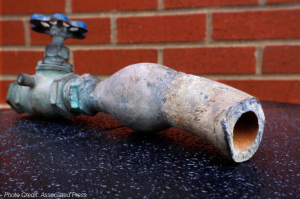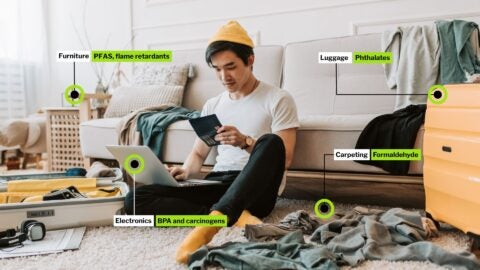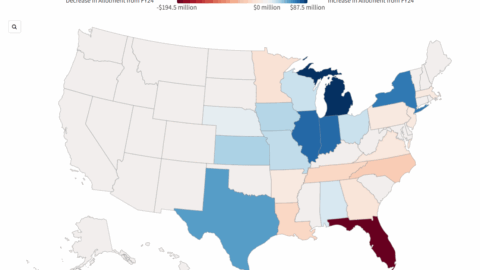
From villages to states, significant progress on lead service line replacement in 2018
Sam Lovell, Project Specialist and Tom Neltner, J.D., Chemicals Policy Director
We recently finished a round of updates to our webpages recognizing states and communities leading the way in efforts to accelerate lead service line (LSL) replacement across the country. As we start the New Year, we wanted to summarize the good news from 2018 and highlight some opportunities for more success.
Ninety-five communities are leading the way on LSL replacement programs:[1]
- 6 communities have publicly announced that they have completely replaced all known LSLs.
- 53 communities have publicly set a goal of eliminating LSLs on public and private property, totaling more than 300,000 LSLs. Ten of the communities are in Wisconsin; Indiana has one investor-owned utility, American Water, which operates 27 separate community water systems; Michigan has four communities; Colorado and Ohio have two; and Arkansas, Massachusetts, Pennsylvania and Washington have one.
- 36 communities are publicly taking steps to replace LSLs but have not yet set a goal of full replacement. One third of these communities are from Wisconsin; seven from Illinois; and five or fewer from New York, Massachusetts, Michigan, Pennsylvania, Rhode Island, Iowa, and Kentucky.
16 states with more than 68% of the estimated 6.1 million LSLs in the country have adopted proactive policies supporting LSL replacement:[2]
- Two states, Michigan and Washington, have adopted goals of eliminating LSLs on public and private property. We previously recognized California on this list, but recent actions by the state’s Water Board make clear that the state’s goal of full replacement does not include LSLs on private property.
- 11 states have provided communities with access to funds, including funds from ratepayers, to replace LSLs on private property:
- Wisconsin, New York, Virginia, and Vermont offer grants;
- Washington, Massachusetts, Indiana, and New Jersey offer zero interest loans;
- Michigan, Indiana, New Jersey, and Pennsylvania have adopted rules or laws expressly allowing use of funds from ratepayers.
- 6 states have or plan to conduct surveys of community water systems to develop better estimates of LSLs and make the results public.[3]
- Michigan and Illinois have mandatory LSL inventory requirements for both public and private property while California’s mandatory inventory requirements address only the public portion.
- Washington, Indiana, Louisiana, Massachusetts and North Carolina conducted voluntary surveys.
- 3 states, Michigan, Illinois, and Ohio require notice to homeowners or other specific work practices when performing construction or removal of LSLs.
There are 15 states with more than an estimated 100,000 LSLs – together accounting for nearly ¾ of the country’s total LSLs. Of these 15 states, ten have publicly taken steps to support LSL replacement, with Wisconsin, Illinois and Michigan offering the most comprehensive efforts. However, five have not taken any public steps to help their communities replace LSLs: Texas (270,000 LSLs); Minnesota (260,000 LSLs); Florida (200,000 LSLs); Kansas (160,000 LSLs); and Iowa (160,000 LSLs).
Most of the proactive, public efforts from both states and communities began after the tragedy in Flint drew national attention to the issue of lead in drinking water. EDF applauds the communities taking steps and setting goals as well as the states that are adopting policies to empower community action. With 6.1 million LSLs across the country, more will be needed to meet the challenge.
We hope that EPA will also do its part to establish appropriate incentives to support states and communities when it proposes revisions to its Lead and Copper Rule. Those long-overdue proposed revisions are expected in 2019.
[1] See our criteria for recognizing community LSL replacement efforts at this link. Communities are updated on a bimonthly basis.
[2] Percentage is based on estimates from the 2016 American Water Works Association Survey. On the EDF tracking page, we use estimates based on state surveys when available.
[3] Note that Kansas, Texas, Rhode Island, New Hampshire, New Mexico have conducted survey but not made the results public.












